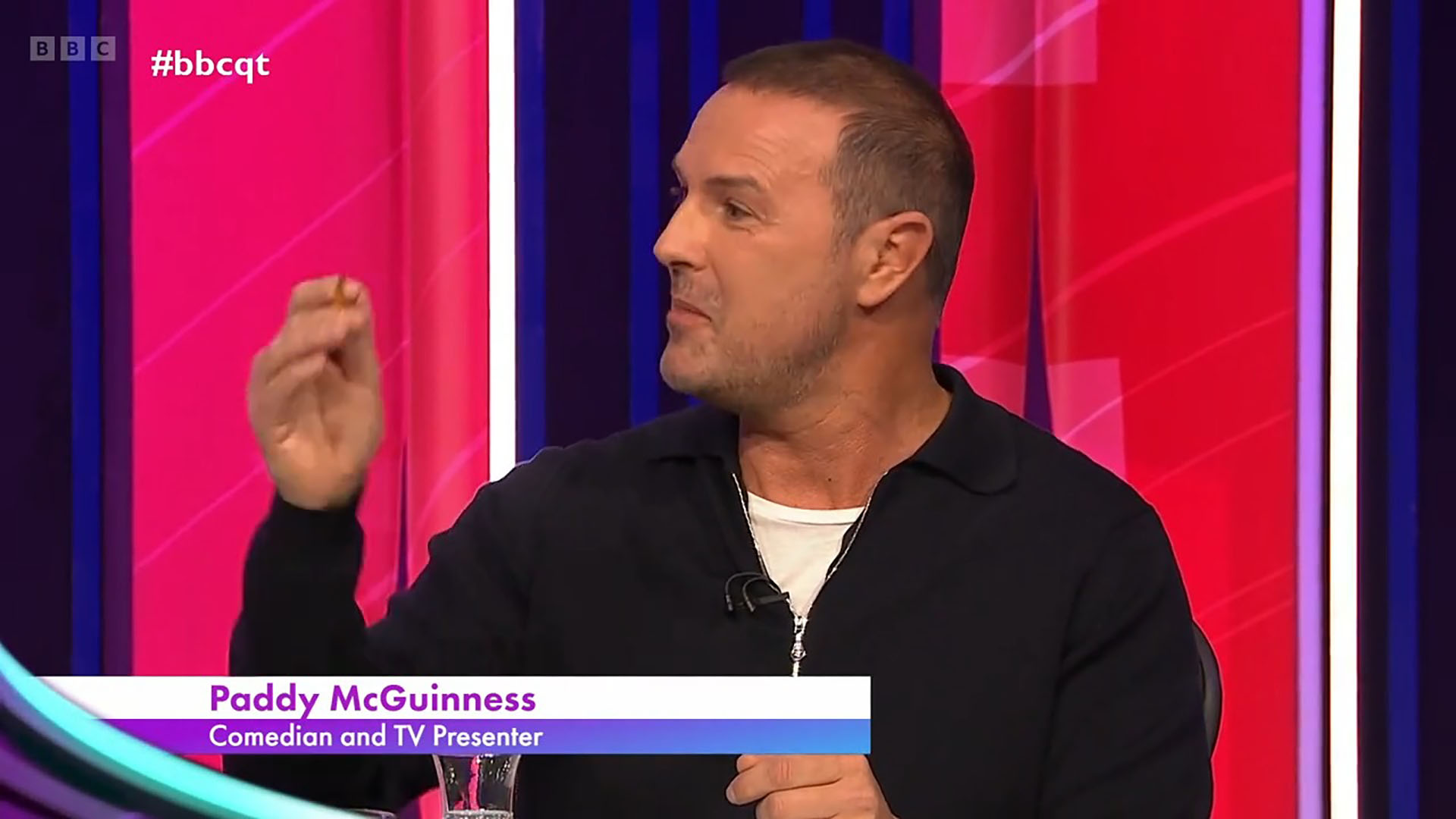This week Paddy McGuinness was on Question Time talking about his father pulling out his own rotten teeth with a pair of pliers. This is not the start of a skit by Stewart Lee, but reality. You don’t get that chat on A Question of Sport. McGuinness was drawing focus to the increasingly impossible position some people find themselves in when they can’t get access to an NHS dentist. He went on to make a very good point about the volume of work and sometimes punitive pay scale NHS dentists faced when they try to see patients. His point was backed up by a dentist in the audience who wanted to do more but was hamstrung by contract obligations. McGuinness made a lot of sense.
Within a few days there was the obligatory think-piece in the Daily Mail decrying the dumbing down of the BBC. McGuinness was on Question Time when, presumably, he should only be allowed on TV to shout “no likey, no lighty”. It’s ridiculous snobbery. It comes from the same place that sees sports stars or musicians told to stay in their lane when they say anything political. Their view is as valid as anybody else’s. And besides, what kind of state would we be in if politics were left only to politicians?
There is something noble about this creative third act that certain entertainers move into. It’s them pushing themselves, leaving them exposed to ridicule but ultimately worthwhile when they hit the right note. McGuinness as a man of Question Time is very much like Beethoven going way beyond expectation and reason and delivering his Grosse Fuge. More power to Paddy and his tooth pliers.
There is a wider point. Health care is in poor health. This is not news. But the inability to really, properly deal with it seems beyond the ken of those we have chosen to be in charge, in Westminster and devolved governments. And so we hear the litany of normalised soundbites – we are putting more money into X and Y than ever before, we are committed to bring down waiting lists, we are slicing bureaucracy, we have made a great pay offer to nurses, etc, and so on.
If you are in the health system, or a loved one is taken into the health system, you see health care workers doing all they can all the time, facing staff shortages, trying to source equipment that works, and seeking to fix those suffering and to help the tired and fearful relatives who have no ready map to navigate. That is a task of huge scale and responsibility. Lip service and nice words for them won’t do.
It is reductive to say, of course, but surely to treat the NHS the same approach should be taken as with any illness. Identify the problem, work on a course of treatment and then deliver it. Clearly, there is an issue of scale. But you don’t make somebody better by just telling them you’re going to make them better.









